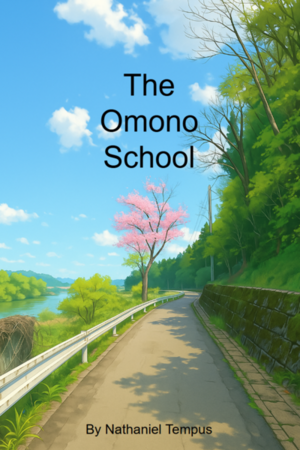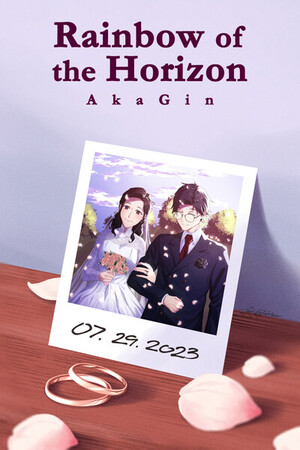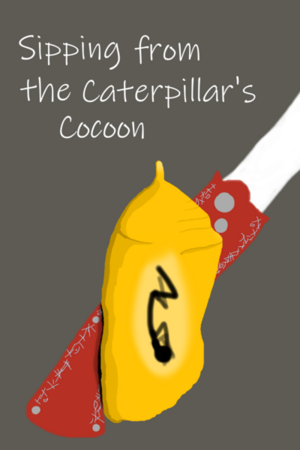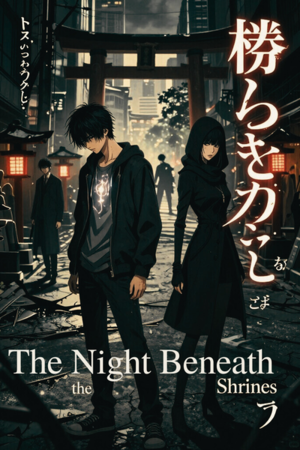Chapter 0:
Chapter 0 America.
The Omono School
I hate America. I hate its architecture, not merely because it is ugly, but because it is soulless — an endless repetition of steel and glass, arranged without spirit, without history, without love. Its skyscrapers rise not toward heaven but toward profit; its suburbs stretch endlessly like a disease spreading across the land. Highways cut through earth like scars, slicing apart whatever beauty once existed here. Even the neighborhoods, for all their manicured lawns and postcard charm, are built upon invisible borders — each street, each cul-de-sac, designed to separate rather than unite. They are built for the comfort of the wealthy, enclosing him in sterile isolation while the poor are banished to the periphery — out of sight, and out of mind. The youth are numbed by comfort, the elderly abandoned in quiet cul-de-sacs that smell faintly of decay and loneliness. It is a nation whose state religion is the worship of convenience, and its markets are the temples of that faith. Every strip mall and drive-thru altar testifies to the same gospel: faster, cheaper, easier — until even the people begin to think and feel in the same disposable terms.
I hate its people, who smile at strangers with an ease that feels rehearsed, as if friendliness itself were part of some national performance. Their greetings are polished, their laughter punctual, their warmth premeditated. They smile not from recognition, not from kinship, but from a desperate need to maintain the illusion of happiness. Behind those smiles, I see exhaustion — a collective emptiness papered over by politeness. The very air hums with pretense, with small talk so shallow it drowns sincerity. Here, even kindness feels transactional. Even compassion feels like customer service.
And then there is the food — an abomination of imitation. Meals that are not meals but chemical parodies of them. Meat that once saw life only in a factory catalog, vegetables grown without soil, bread that never stales because it was never truly alive. Flavors are engineered, textures adjusted, colors brightened — not for pleasure, but for profit. It is not the taste I despise, but what it represents: a society that no longer knows the difference between substance and appearance. Everything here is a copy of a copy, a shadow of something that was once real.
At sixteen, I had been dragged here against my will, torn from a life I once called my own. My parents, blinded by the televised mirage of prosperity, thought this land of noise and neon was salvation. They spoke of freedom, of safety, of opportunity. But all I saw was isolation. I saw neighbors who never spoke, streets that led nowhere, and nights that hummed with the electric silence of machines. I felt the weight of a dream that was not mine pressing down upon me until I could scarcely breathe.
And so I worked, two months into a minimum-wage job at a convenience store. I stacked shelves beneath flickering fluorescent lights, swept floors that would be dirty again by morning, priced goods that I could never afford. I existed in the margins, unseen, unspoken to, unremembered. Each night I left the store with the smell of plastic and stale air clinging to my clothes, and each night I told myself: I wanted out. Out of the job, out of the town, out of the country. Out of the life that was never meant to be mine. I wanted freedom — not the kind they advertise, but the kind that makes you feel alive.
06/11/2023 (Monday)On the date listed above a new hire showed up on a rainy day.
I was wiping down the counter when he walked in, a man not much older than myself, maybe seventeen or maybe eighteen, with dark hair and an expression that didn’t belong to someone working minimum wage. He looked too calm, too deliberate, as though every movement had been rehearsed.
“Hey,” the newcomer said, setting down his backpack. “You’re Daniel, right?”
I nodded cautiously. “Yeah. So you’re the new guy?”
“Guess so. Name’s… well, doesn’t matter yet. We’ll get there.” He smiled, as though he knew something I didn’t. “So, what’s your thing?”
“My… thing?”
“You know. Interests. Stuff that keeps you sane while you’re here.”
I gave him a long look. Most people didn’t ask. They didn’t care. But something in this stranger’s voice pushed me to answer.
Well, there are many things that interest me — history, biology, engineering and physics, in particular Einstein's theory of relativity, and how it could be used to build a time machine.
The new hire leaned on the counter, eyes glinting with amusement. “Time travel? You believe in that?”
I don’t just believe in it. I know it’s possible. It has been done before between the years of 1991 to 1992 a Soviet/Russian cosmonaut got stranded in the mir Space Station. And due to the fact that he was traveling at high velocity in Earth’s orbit he was able to Become 0.02 Seconds younger than people born at the same time as him.
The new hire nodded slowly, as if he’d expected that answer all along. “Interesting.”
I looked confused and bewildered. “Why do you care?”
“Just curious.”
“All right, then — would you like to be made aware of my other interests?”
The new hire smiled, “Of course.”
Well, you see I also have a great knowledge in history and Biology.
The new hire leaned forward in his chair. “Can you tell me more about your interest in detail.”
I decided that for as long as the boss didn't see us chatting this much. I might as well give him a history lecture. “In regards to history I have an overall broad knowledge of the subject but I am practically specialized in: the history of warfare, the history of technology (in particular aerospace), the history of politics and of least relevance to my interest the history of business and fashion”
The new hire looked on, showing great interest in what he was hearing. “So tell me about your other great interest biology.”
In regards to the field of Biology I am quite good in all subjects however I do particularly well in Hematology and Cardiology.
“Now that I've told you about myself I think it is only fair that you tell me about yourself. where you are from, what your previous job was and what are your goals in life?”
“Well, you see I'm from the US Virgin Islands, and I immigrated to the mainland around this time last year, and this is my first job here. I have about $200 in cash I saved from a previous job I worked back when I lived on the islands”.
“That is nice to know. I look forward to working with you in the future.”
07/11/2023 (Tuesday)
It was just another day. I was sitting at the cash register. Handling the transactions of the day when the new hire strolled in, tossing a black leather wallet onto the counter. “You dropped this.”
I proceeded to search all over myself. Pulling out my pockets, eventually I took out my old worn wallet. “No, I didn’t. I’ve got mine.”
The new hire was confident however that I had a second wallet which I dropped. And so he asked that I “Check it.”
Reluctantly, I opened the new wallet, and what I found took my breath away. Inside was a driver’s license, my face staring back at me, my name written in bold black letters. Daniel Bay. Same address. Same photo. But the birthdate read 12/03/2002, making me twenty-one years old. Old enough to buy alcohol. And in the country I was in. old enough to buy a gun without a license.
There were also two bank cards embossed with my name, Pursuit Bank, a place I had never even set foot in. A transit card for the city’s bus line, which I never applied for. And, disturbingly, every card bore my signature, flawlessly mine.
My hands trembled. At the back of the wallet sat five crisp $100 bills.
“This isn’t mine,” I whispered.
“Looks like it is,” the new hire said calmly.
And I looked again: My name, my photo, my signature, essentially my identity.
Against my better judgment, against the voice screaming in my head, I pocketed the wallet.
08/11/23 (Wednesday)Curiosity gnawed at me. By morning, I couldn’t resist.
I walked into the nearest branch of Pursuit Bank, half-expecting security to laugh me out the door. But when I handed over the card, the teller smiled politely, swiped it, and said, “How can we help you today, Mr. Bay?”
The accounts were real. The money was real. Apparently there was $2,000 sitting in this account. I even deposited $200 in cash.
By the time I arrived at work that evening, my head was spinning.
The new hire was waiting with a smug expression on his face. “Thought you might need this,” he said, sliding a small box across the counter.
I opened it. A brand-new phone gleamed inside, the screen pristine, still wrapped in factory plastic.
I was originally quite pleased with what I received; however, I began to wonder how the new hire was able to just buy a new phone and decide he didn't want it. And then give it to his friend at work all on the minimum wage. “How could you afford this? We make minimum wage.”
The new hire only smiled. “Let’s just say I knew your old one was cracked.”
I froze. “How did you know?” I had never once taken my broken phone out at work in front of him.
So I turned to my boss, who was restocking the shelves. “Did you buy this?”
The boss shook his head. “No.”
I felt my stomach knot. Nothing made sense.
09/11/23 (Thursday)The moment I walked into work. The new higher pulled me aside for an interview without warning.
“You’ve got potential,” the new hire said, leaning across the counter. “But I need to know more.”
“I’m working,” I muttered, turning away.
“Not anymore.”
I appealed to the boss. however he didn't seem to bear any desire to intervene.
So I followed the new hire into the back of the store. I sat on a wooden stool while the new hire fired questions at me. Not about the store, not about the job. About my beliefs, my fears, my loyalties. Questions about history, and choices I had never thought to consider.
“All right let's begin.”
“Okay now this is just getting weird. What are you going to ask me? Because if you're wondering I cannot just grow a pair of wings and fly away because if I could I would have done that a long time ago.”
“You know, that’s actually a pretty good place to start. Where would you go if you could do that?”
I looked at the new higher with a dumbfounded expression. “What sort of a question is that? I guess somewhere that isn't America. because seemingly everything in this country is made to piss me off.”
The new hire seemed to be very pleased with my response. Then in his usual positive tone he asked “All right now. So if you do not want to live in America then where do you want to live?”
I thought about the question deeply before responding: “Somewhere with warm weather. but not so warm as to the point that I cannot discern the transition between seasons. Also this location should be in an area with minimal noise, air and light pollution. In addition this location should have activities that do not require me to spend money. The area should be small enough that for most things I can walk or bike, and if something is not within walking or biking distance I should be able to have access to decent public transit for a reasonable price. And finally I would like to be surrounded by like-minded people who do not have a radically different way of thinking compared to myself.”
The new hire intensely noted down all that I was saying. Before moving on to the next question.“All right now that we have location out of the way I must ask you. Who is it that you fear the most?”
“God Almighty.”
“All right then to whom are you loyal to?”
“Well in order from greatest to least we have: God, Those who have not wronged me, Those who do not impose their ideology or will on me and finally my family.”
The new hire sat back in his seat probably thinking of some more questions to throw at me after a while he asked the question. “If you were to go against your country of origin while being in the service of a non-governmental organization would you do it?”
“Well you see it depends on what you define as my country of origin. Because I'm kind of from all over the place. My father was born in Türkiye and my mother is of pure Japanese ancestry. And you see my paternal grandmother was from Syria while my grandfather was from Türkiye. Both initially wanted to move to Lebanon where they both had relatives. However after they got married they were unable to move to Lebanon because of the civil war. So they decided to move to Türkiye after the war ended in 1990 They moved back to Lebanon. However my father was not satisfied with life in Lebanon and so decided to get into the engineering field and move to Dubai where he would meet my mother. My mother's ancestry is pretty straightforward, all Japanese.
The new hire nodded along as he listened to my Family history. “So you have quite the ancestry.”
“Exactly and that's just the family history I know about.”
The new hire tapped his pen against his notepad, studying me with a look that was too sharp for a retail job. “You’ve thought about where you belong. That’s good. Most people let the world drag them along until they forget who they are.”
By this point, I had no clue what the interview could be for, so I just said what first came to mind. “That’s… is a very philosophical statement for a stockroom interview.”
He chuckled softly. “I guess so but you see I am not interested in whether you could stack shells or ring up groceries. I am interested to see if you could think for yourself or make decisions without the aid of others.”
“Think for myself, Think for myself?” I leaned back in my chair. “What exactly does that have to do with anything?”
“Everything.” The new hire’s eyes flicked up from his notepad, steady and unblinking. “If you can’t think for yourself, you’ll never notice when someone else is making your choices for you.”
The silence that followed pressed in heavy. I tried to laugh it off. “Okay… so what, are you trying to hire me for a cult or something?”
“Not a cult. But an opportunity to change your life in ways you never thought possible before.”
“Fine. Then ask your next question.”
He nodded, as though he’d been waiting for me to say that. “Tell me, Daniel — when was the last time you stood at a crossroads and made a decision that changed the direction of your life?”
I hesitated as my memories stirred, seemingly nothing could come up. “Well you see I've mostly lived under the rule of my parents.”
The new hire pauses for a moment, seemingly thinking up a response, before saying. “Okay then, I have a question for you: If you could change any decision in your life, what would that decision be?”
I paused for probably a whole minute to come up with a response. “I would have never left Asia whether it be Japan or the Middle East. That is where my extended family are. And the isolation from them not being around probably contributed to my mother and Father's current mental state.”
The new hire then asked: “What did you learn from leaving then.”
I quickly responded with. “Single choices made in the present could impact somebody a decade in the future. Also it is a wise decision to maintain a relationship with your extended family. You do not know what you would become without them.”
The new hire wrote something down on his note pad again, his pen racing across the page.
“Good. You understand the weight of choice.”
The new hire’s tone shifted, it was now softer, but heavier somehow. His pen stopped moving, and for a moment he simply studied me. The hum of the freezer behind us filled the silence.
He leaned forward. “Now tell me, Daniel. You mentioned something to me on Monday. About a cosmonaut who aged slower than the people on Earth. You remember?”
“Yeah,” I said slowly. “Sergei Krikalev. He spent a long time on the Mir Space Station. Because of time dilation, he came back a fraction of a second younger than he would’ve been.”
He smiled faintly. “A fraction of a second. And yet, it was enough to prove that time is not the same everywhere.”
I nodded. “That’s physics.”
The new hire leaned back in his chair, studying me for a long moment. The hum of the freezer filled the silence. Then, tapping his pen softly against his notepad, he said, “Let’s talk about the week, Daniel. Monday through today. Tell me what you think has been happening.”
I frowned, uncertain. “What do you mean?”
“You’ve been here every day, haven’t you? Same store, same counter. And yet, does it feel like the same week to you?”
The question threw me off. “Of course it does. Why wouldn’t it?”
He smiled faintly. “Just making sure. Then tell me — what do you make of the things that have happened since I arrived?”
“The wallet,” I said immediately. “And the phone. You gave me both. You should be the one explaining, not me.”
“I’m more interested in how you saw them,” he said quietly. “Not what they were, but what they meant to you.”
I hesitated. “I don’t know. Maybe I thought someone was playing a trick on me. Or testing me.”
“Testing you,” he repeated, as if tasting the words. “And did you pass?”
I gave a humorless laugh. “If this is the test, I doubt it. I’ve spent the whole week confused.”
He didn’t respond immediately. He just nodded slowly, as if my answer confirmed something he already suspected. “Confusion isn’t failure,” he said finally. “It’s the first step toward understanding.”
I looked at him closely. His calmness unnerved me. He wasn’t asking random questions anymore. He was leading somewhere.
“What exactly are you trying to understand about me?”
He met my eyes evenly. “What do you think? How you see the world. That’s all.”
There was something disarming about how simply he said it. “All right,” I muttered. “Then ask.”
He flipped to a new page in his notebook. “You mentioned earlier that you have an interest in physics. I remember you spoke about Einstein’s theories. But you also mentioned biology and history. Let’s start there. Which of those two do you feel you understand best?”
“History,” I said without hesitation.
He smiled faintly. “Good. Then tell me, if you had to explain the entire history of humanity in one idea, one thread that runs through every era, what would it be?”
That question caught me off guard. I thought for a moment before answering. “Adaptation,” I said. “Humans have always changed to survive, new tools, new systems. We build, destroy, and build again. We adapt, even if it kills us in the process.”
The new hire’s smile deepened slightly. “Adaptation,” he echoed. “That’s a word a biologist might use.”
“Maybe,” I said. “But it’s true in history too. Civilizations rise and fall for the same reason species do. They stop adapting.”
He nodded. “So you see life and history as similar processes, different scales, same pattern.”
“Exactly.”
He leaned forward slightly, pen poised again. “Then humor me. What do you think drives that pattern? What makes people change?”
I looked down at the floor for a moment. “Fear, maybe. Or necessity. Nobody changes just because they want to. Something forces it — war, famine, failure, guilt. Change only happens when the old way doesn’t work anymore.”
“Interesting,” he said. “And what about you? What would it take for you to change?”
I blinked. “I don’t know. Probably the same stuff.”
He jotted something down, then looked back up. “You see, that’s what I find fascinating about people like you. You notice patterns. You don’t just memorize facts; you understand cause and effect. That’s rare.”
“People like me?” I asked.
He ignored the question. “Let’s move to biology for a moment. You said you were especially interested in hematology and cardiology.”
“Yes.”
He tilted his head. “Why those?”
I hesitated, surprised by how easily he remembered what I’d said. “Because they deal with the two things that sustain life, blood and the heart. Everything else depends on them.”
He nodded thoughtfully. “So you study the systems that keep life moving.”
“Pretty much.”
He seemed pleased with that answer, though I wasn’t sure why. “Tell me, Daniel. Do you think understanding life — truly understanding how it functions — gives someone power over it?”
“Power?” I repeated. “To an extent. However understanding doesn’t just give you power. It gives you responsibility.”
He smiled faintly, almost approvingly. “That’s a good answer. Power and responsibility go hand in hand, and indeed, if you understand this, you will truly be a great and righteous leader.”
He looked back up, tone gentler now. “You said once that small choices in the present can affect the future, even decades later. Do you believe that’s always true?”
“Yes,” I said without thinking. “I’ve seen it in my own family.”
He nodded. “Then maybe you already understand more than you think.”
For a moment, neither of us spoke. There was a weight in the air, not threatening, but heavy with meaning I couldn’t quite reach.
Then he closed his notebook and stood. By this point I felt drained, wrung out like a rag. The new hire released me with a nod “That will do for today.”
10/11/23 (Friday)I never made it to work.
Halfway there, a sharp sting pierced my left arm. I froze, glancing down to see a dart jutting from my skin. A thin stream of clear colorless liquid rushed into my veins, icy and invasive. At first I didn’t believe it, my mind stalled, blank. Then the sensation hit me in waves: my heart hammering too fast, my throat tightening, my stomach lurching as if the floor had vanished beneath me.
I yanked the dart out. I reached for my phone, the new one. However, much to my misfortune, the battery was dead.
I tried to keep moving, pushing toward the store, but the distance was too great and my legs were growing heavy. Each step was slower than the last.
6 minutes after being shot I collapsed on the sidewalk, a strange feeling that can best be described as brutal weakness. And strangely an overwhelming sense of calm. The symptoms bore a suffocating grip on my body. Using what strength I had left I was able to drag myself to a nearby palm tree and set myself up right. I lost consciousness about 3 minutes later while gazing upon the clouds in the sky.




Please sign in to leave a comment.